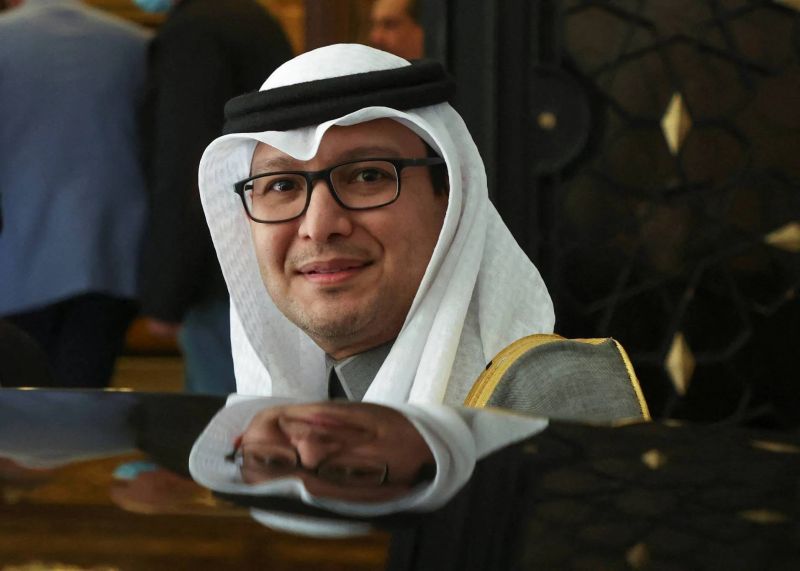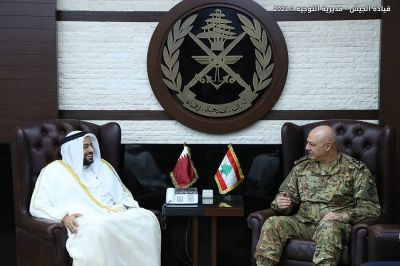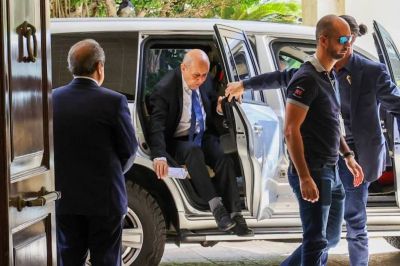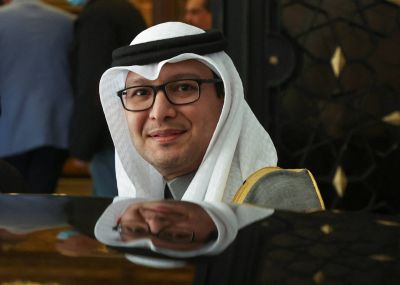
Saudi Ambassador to Lebanon Walid Bukhari. (Credit: Mohammad Azakir/Reuters/ File)
BEIRUT — Saudi Arabia's ambassador to Lebanon Walid Bukhari declared Saturday evening that the Lebanese presidential election is "a sovereign matter," assuring nevertheless that Riyadh was ready to "continue its efforts to encourage" Lebanese leaders to reach a settlement of the crisis.
"The kingdom wants the entire region to be safe and stable," the diplomat said during a speech delivered on the occasion of Saudi National Day, referring to a "shared responsibility to preserve Lebanon and its sovereignty."
Bukhari reiterated that his country's position on the Lebanese political crisis was in line with that of the international community, "which insists on the need to speed up the election of a president capable of meeting the people's expectations."
"We will continue our joint efforts to encourage Lebanese leaders to elect a head of state and to carry out reforms," he pledged.
In this context, he described the presidential vacancy in Lebanon, which has lasted since Michel Aoun left Baabda on October 31, 2022, almost a year ago to be "very worrying." This political crisis "threatens efforts to implement urgent reforms," called for years by the international community and, most recently, by the International Monetary Fund as a precondition to the release funds to help the country recover from the crisis.
A sovereign matter
"Lasting solutions must come from within Lebanon, not from abroad," he urged, insisting that the presidential election is "a sovereign matter, which the Lebanese must decide for themselves."
"We are confident that the Lebanese are capable of assuming this responsibility and uniting to elect a president," he continued.
For his part, Saudi Foreign Minister Faisal ben Farhane addressed the situation in Lebanon in a speech to the UN General Assembly. "We stand by the Lebanese people and call on all parties to launch comprehensive reforms that will lead to a way out of the crisis," he said.
Previously very influential on the Lebanese scene, Saudi Arabia has distanced itself from it in recent years, notably to mark its disapproval of the growing role of Hezbollah. Riyadh is, however, a member of the Group of Five (France, USA, Saudi Arabia, Qatar, and Egypt), which has met three times in recent months to discuss Lebanon.
The latest meeting of the quintet, following those in Paris and Doha, took place Tuesday on the sidelines of the United Nations General Assembly. No communiqué was issued, and the round table was reportedly the scene of disagreement between the participating powers. Riyadh and Washington reportedly demanded that Paris set a timetable for its initiative in Lebanon, led by Jean-Yves Le Drian, and put the threat of sanctions against those responsible for the stalemate back on the table.
'A president the enemy fears'
Sheikh Nabil Kaouk, a member of Hezbollah's Central Council, Sunday implicitly accused the opposing political camp of having scuppered local and international initiatives, alluding to the call for dialogue launched by Speaker of the House Nabih Berry, and the French initiative led by special envoy Jean-Yves Le Drian.
"The failure of internal and international initiatives is complicating the crisis and accelerating the collapse. The camp of defiance and confrontation is responsible for this failure," he said, in a speech delivered in the locality of Beit Lif, in South Lebanon Sunday, in remarks reported by Hezbollah's office.
"We and the Amal movement are working together to find solutions, while the camp of defiance and confrontation is busy putting up obstacles," Kaouk accused. "Lebanon needs a president whom the enemy fears and who will not submit to pressure from Washington."
Hezbollah MP Hassan Fadlallah asserted that "no one can impose a president on Lebanon."
"We listen to those who come to Lebanon with good intentions, but in the end it is the members of Parliament who will elect the President of the Republic. Even if foreign powers propose names, it's the parliamentary groups that choose who they want to elect," he said, in a speech in Jabal Amal Sunday. "Foreigners, whoever they may be, cannot impose a president on the Lebanese."
"We will not be silent about the deliberate absence of the only Christian president in the whole League of Arab States," said Maronite Patriarch Bechara al-Rai Sunday. "The law and the constitution are violated in Lebanon by those in power."


